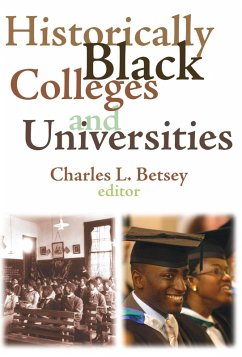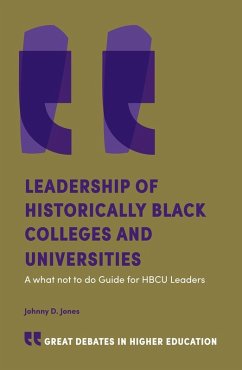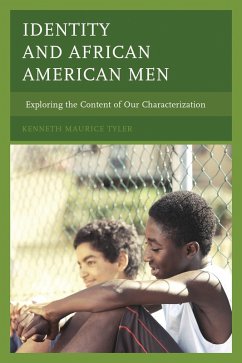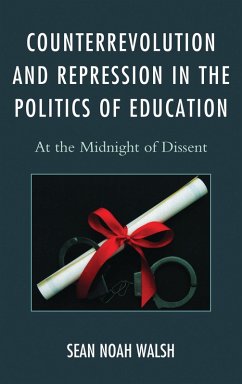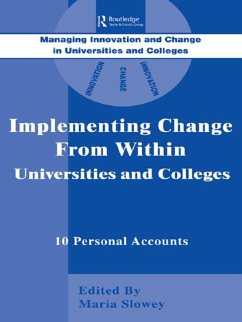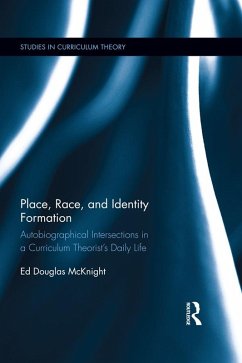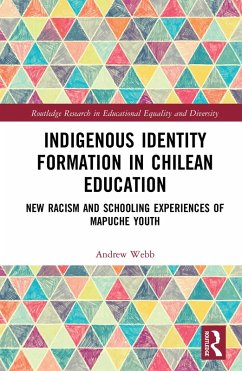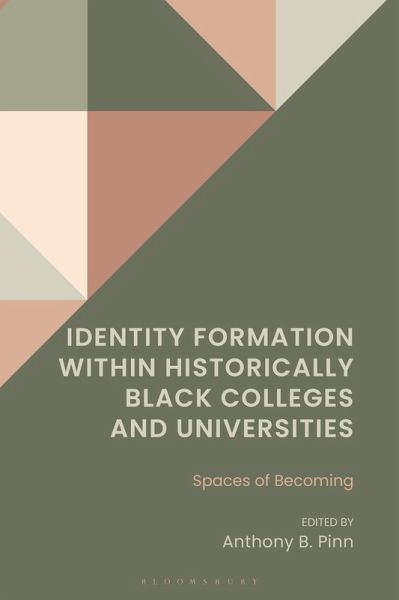
Identity Formation within Historically Black Colleges and Universities (eBook, PDF)
Spaces of Becoming
Redaktion: Pinn, Anthony B.
Versandkostenfrei!
Sofort per Download lieferbar
68,95 €
inkl. MwSt.
Weitere Ausgaben:

PAYBACK Punkte
34 °P sammeln!
Drawing from institutional research, this book advocates for the ongoing importance of HBCUs and shows how their curriculum, programming, and self-understanding all point to education as a strategy for enhancing the whole person. Over the years, historically Black colleges and universities (HBCUs) have played a significant role in the formation of Black identity in a society that struggles to appreciate difference. Bringing the vitality of these institutions to a larger public, high profile donors and advocates have served to safeguard the ongoing necessity of what HBCUs represent. Drawing on ...
Drawing from institutional research, this book advocates for the ongoing importance of HBCUs and shows how their curriculum, programming, and self-understanding all point to education as a strategy for enhancing the whole person. Over the years, historically Black colleges and universities (HBCUs) have played a significant role in the formation of Black identity in a society that struggles to appreciate difference. Bringing the vitality of these institutions to a larger public, high profile donors and advocates have served to safeguard the ongoing necessity of what HBCUs represent. Drawing on scholars from various disciplinary backgrounds, Anthony B. Pinn and the contributors explore the intersections of race and higher education through the lens of self-awareness and community awareness. The chapters tackle areas such as how HBCUs have handled focusing on (or not focusing on) Black history and Black cultural production in their courses, identity formation of international students at HBCUs, HBCUs contribution to identity formation in a global context-promoting Pan-Africanism, and how HBCUs promote healthy identity formation for Black students. Through institutional research, this book provides a uniquely layered and historical sensitive discussion of how HBCUs developed and their relationship to issues of Blackness and personhood.




